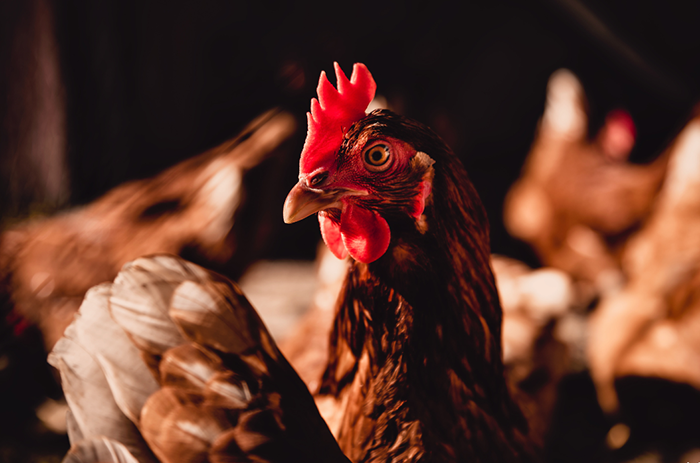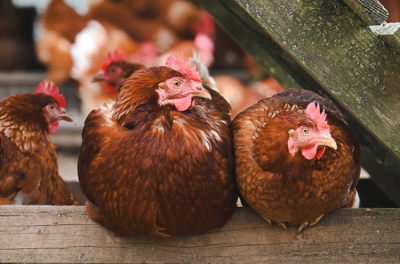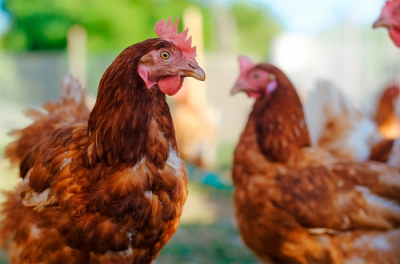

Biosecurity Program to Prevent Respiratory Diseases in Poultry During the Rainy Season
The rainy season is a vulnerable time for poultry farming because humid and wet conditions can facilitate the spread of diseases, especially respiratory diseases. In such weather conditions, high humidity creates an ideal environment for the growth of bacteria, viruses, fungi, and parasites that can cause infections. Therefore, implementing a biosecurity program is essential to protect poultry health.
Here are the steps in a biosecurity program that can be implemented to prevent respiratory diseases in poultry during the rainy season:
1. Humidity and Ventilation Control in the Cage
The rainy season often causes high humidity levels inside the cage. Excessive humidity can accelerate pathogen growth in the cage environment. Therefore, controlling humidity and ventilation is critical to maintaining fresh air and preventing excessive humidity. The following actions can be taken:
- Improving Ventilation: Ensure the ventilation system works optimally to maintain air circulation. Good ventilation will help reduce ammonia levels in the air, which, if left unchecked, can lead to respiratory infections in poultry.
- Adjusting Air Circulation: If possible, install fans or air circulation devices to reduce humidity inside the cage.
- Regular Roof and Wall Checks: Ensure the roof and walls are leak-free to prevent rainwater from entering the cage and causing wet litter.
2. Environmental Sanitation Management
A clean environment can prevent the spread of disease. Routine sanitation around the cage area is essential, especially during the rainy season. Steps to take include:
- Regular Cleaning: Regularly clean up waste and leftover feed to prevent the growth of fungi or bacteria that are harmful to poultry health.
- Cage Disinfection: Periodically spray disinfectant to eliminate pathogenic microorganisms that may cause infections. Disinfection can be done at least twice a week or as needed, depending on the poultry’s condition.
- Reducing Standing Water Around the Cage: Ensure that drainage around the cage is functioning properly to prevent water from pooling. Standing water can become a breeding ground for parasites, bacteria, and vectors such as mosquitoes.
3. Cage Access and Security Control
Limit access to the cage to minimize the potential spread of pathogens from outside. Here are some ways to maintain secure access:
- Restricting Human and Equipment Access: Only essential workers should be allowed into the cage, and they should wear protective clothing (PPE) and special footwear to prevent contamination.
- Using Foot Baths: Place foot baths containing disinfectants, such as Benzalvaks, at the cage entrance to ensure workers' footwear is pathogen-free.
- Disinfecting Equipment: Ensure that all equipment used in the cage is disinfected before and after use.
4. Feed and Water Management
Poultry feed and drinking water must be kept clean and free from contamination. The rainy season can make feed and water more susceptible to humidity and bacterial contamination. Steps to take include:
- Storing Feed in a Dry Place: Ensure feed is stored in a dry, tightly sealed area to avoid contamination or moisture.
- Monitoring Drinking Water Cleanliness: Ensure drinking water is always clean and use a closed drinking system, like nipples or pipes, to prevent bacterial contamination. Water sterilization is also necessary, using agents like agricid, intrahydrocare, or biodan.
- Using Immune-Boosting Supplements: Provide vitamin and mineral supplements, such as vitamin C or probiotics, to boost poultry immunity against diseases, such as Vitakur.
5. Regular Monitoring and Vaccination
Regular monitoring of poultry health is an essential part of biosecurity. Additionally, vaccination can be an effective preventive measure:
- Routine Monitoring: Conduct daily health monitoring, observe for signs of respiratory infection, such as wheezing, difficulty breathing, or loss of appetite.
- Vaccination Program: Follow the vaccination schedule recommended by veterinarians. Vaccination against diseases such as Infectious Bronchitis or Newcastle Disease is highly recommended as these diseases often occur during the rainy season
You may also like

Probiotic to Optimize Egg Production and Improve t...
In the poultry industry, production efficiency is...

Probiotics’ Impact on Lowering Ammonia Levels and...
Air quality within poultry houses is a crucial fac...

The Role of Prebiotics in Supporting Gut-Associate...
Gut-Associated Lymphoid Tissue (GALT) is the large...

